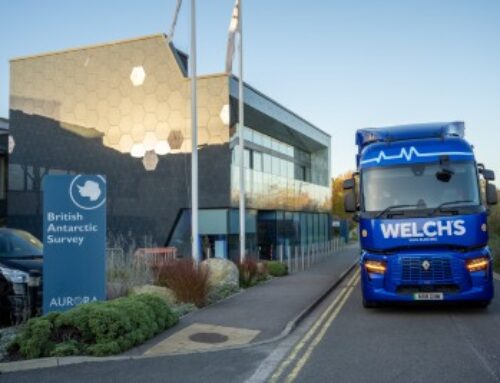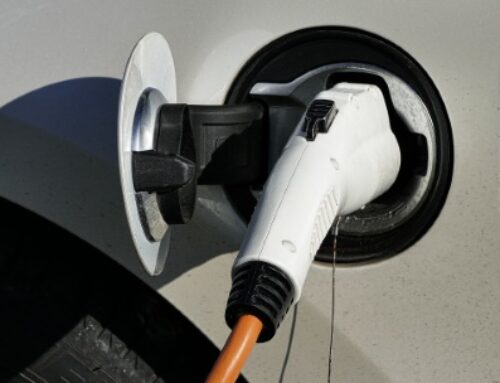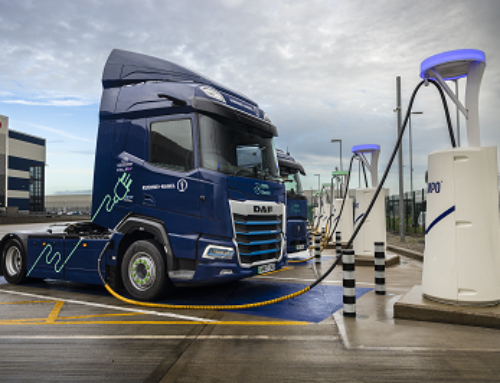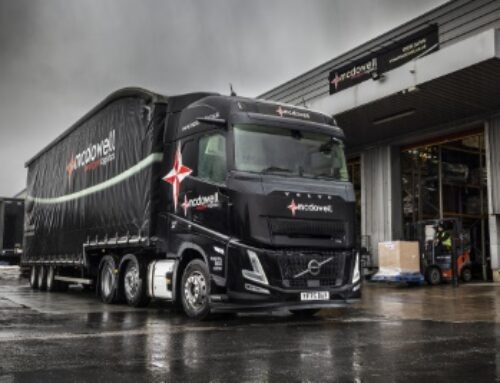Iveco takes ownership of Nikola Tre electric truck project
 Hydrogen fuel cell truck specialist Nikola has sold its share in its joint venture with Iveco to its European truck maker partner, and suspended truck production in the USA.
Hydrogen fuel cell truck specialist Nikola has sold its share in its joint venture with Iveco to its European truck maker partner, and suspended truck production in the USA.
The Nikola Tre battery-electric tractor unit was a prominent feature on Iveco’s stand (Transport Operator 116) at April’s Commercial Vehicle Show.
In payment for total ownership, Iveco hands back 20.6 million shares in Nikola that it took when the JV was established, and pays $35 million cash. Iveco retains ownership of around five million Nikola shares.
Revenue from the sale will enable Nikola to concentrate on developing its signature fuel-cell technology, and leave Iveco with the battery-electric system, which was always something as a stop-gap for Nikola while it developed fuel-cell technology and worked on the development of a hydrogen fuelling network.
Founded in 2019, the joint-venture saw Iveco’s then parent CNH Industrial contribute $250 million in cash and convert part of its plant in Ulm, Germany to build the battery-electric Nikola Tre. Initially the plan was to build and launch the Tre in Europe first as a battery truck then follow with a fuel cell version, but a flush of interest from American buyers attracted not only by the pulling-power of the battery Tre, but also the tight turning circle given by its European cab-over design, forced a change of strategy.
With the exception of prototypes, the first Nikola Tres were assembled at a new Nikola plant in Coolidge, Arizona, using a chassis-frame made in Mexico and an Iveco cab imported from the European company’s factory in Spain. Customer letters of intent representing orders for several hundreds of trucks from buyers in North America were reported to be held by Nikola last year.
Clearly things have not turned out quite as expected. In the immediate aftermath of the joint venture’s breakup, assembly work at the $600 million plant in Coolidge was stopped and Nikola said it would build battery-electric trucks only to meet firm orders. Like many other ‘disruptor’ start-ups in the field, Nikola is burning through investors’ cash at a significant rate. Last year it consumed $200 million a quarter. In the first quarter of 2023, this figure increased to $240 million.
Nikola’s chief financial officer, Stasy Pasterick, said: “This level of cash burn is not sustainable for our business, and we are looking at every option for reductions in spending,”
Production will resume in July, but with the focus on building fuel-cell trucks.
Nikola had produced 63 battery Tres in the first quarter of the year and delivered 31 to dealers, while 33 retail sales were achieved; and it says it has firm orders for a total of 140 hydrogen versions from 12 different customers. The temporary factory closure is to allow work to enable battery and hydrogen trucks to be built on the same line, it said.
Disposing of its share of the joint venture does not mean the end of links between Nikola and Iveco. The European company gets a licence to keep developing vehicle control software for both the hydrogen and battery Tre, while Nikola gets the North American licence for the Iveco S-Way heavy truck that the Tre is based on. It also retains the joint intellectual property ownership of the Generation 1 eAxles that were developed for the Tre by Iveco’s engine supplier FPT.
While lagging behind established early entrants to the battery heavy truck market, most notably Daimler and Traton, Nikola considers that it is still ahead of the game with hydrogen fuel cells. Hyundai has just opened the order book for its Xcient fuel cell truck, while Paccar subsidiaries Kenworth and Peterbilt will launch their hydrogen trucks only in 2025, using a second-generation fuel cell system from Toyota Motor North America.
Customers have considerable incentives for choosing fuel cell trucks in North America: $40,000 per truck is available under the Federal Inflation Reduction Act, while Californian operators can get up to $288,000 subsidy from the local state.













